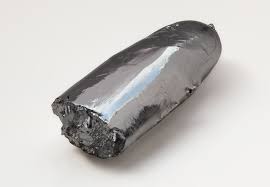Ruthenium
Ruthenium is a chemical element with symbol Ru and atomic number 44. Classified as a transition metal, Ruthenium is a solid at room temperature.
Most is used in the electronics industry for chip resistors and electrical contacts. Ruthenium oxide is used in the chemical industry to coat the anodes of electrochemical cells for chlorine production. Ruthenium is also used in catalysts for ammonia and acetic acid production.

